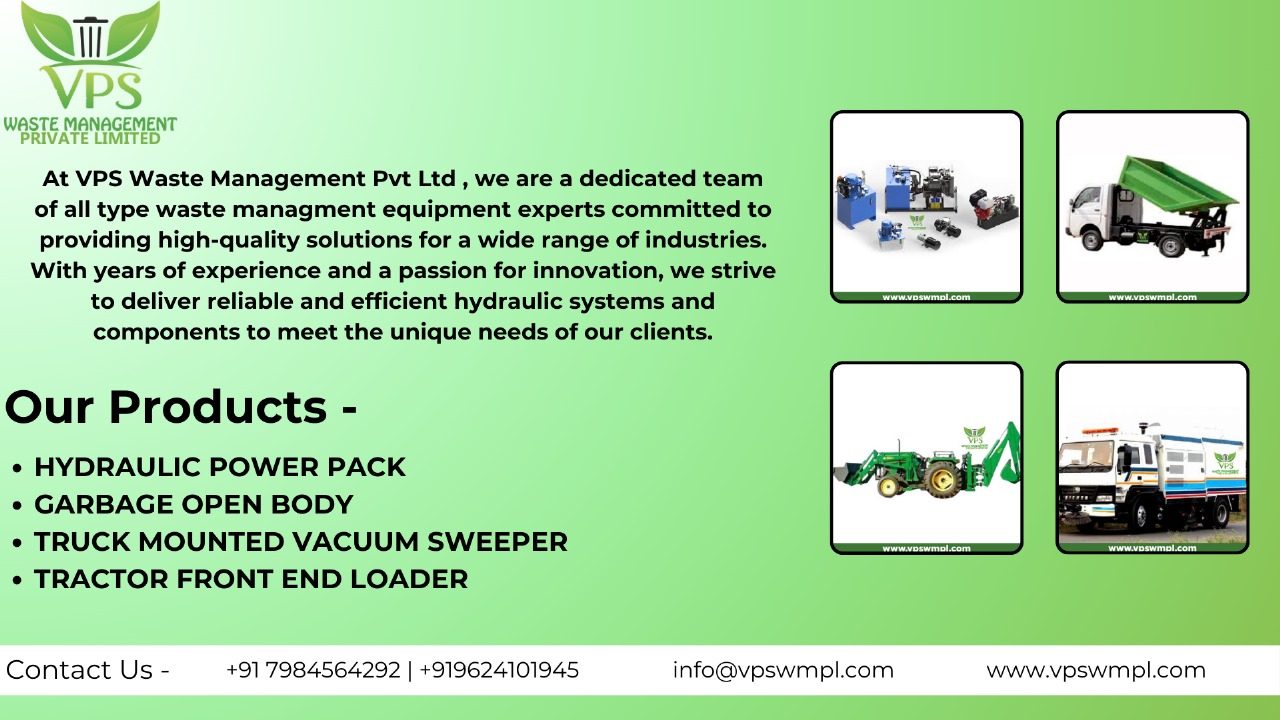Liquid Waste Handling Equipment
LiquidWaste Handling Equipment refers to specialized machinery and systems used to collect, transport,
treat, or dispose of liquid waste. This includes waste such as sewage, sludge,
industrial effluent, contaminated water, grease, or chemical
liquids. These systems ensure safe, efficient, and environmentally
compliant waste management.
Common
types of liquid waste handling equipment include:
- Vacuum tankers
- Sludge dewatering systems
- Jetting machines
- Pump systems
- Portable suction units
- Oil-water separators
- Centrifugal or diaphragm
pumps
- Mobile waste collection
trailers
These
units are used by municipal bodies, industries, constructionsites, and waste management contractors for safe collection and
disposal of hazardous or non-hazardous liquid waste.
Top FAQs – Liquid Waste Handling Equipment
- Q: What is considered liquid
waste?
A: Any non-solid waste such as sewage, industrial effluents, oil, grease, wastewater, and chemical slurries. - Q: What types of equipment
are used to manage liquid waste?
A: Vacuum tankers, suction pumps, sludge dewatering machines, high-pressure jetting machines, and separators. - Q: Where is this equipment
typically used?
A: In municipal sewer cleaning, industrial effluent management, oil & gas operations, and construction sites. - Q: What is a vacuum tanker
used for?
A: To suction and transport liquid waste such as septic tank sludge, wastewater, or slurry. - Q: Can this equipment handle
hazardous liquid waste?
A: Yes, certain models are designed with chemical-resistant materials for hazardous or corrosive liquids. - Q: How is the waste disposed
of after collection?
A: Typically transported to treatment plants, incineration units, or bio-digesters, depending on the waste type. - Q: Are these systems
available in mobile form?
A: Yes, many units like vacuum trucks or portable suction units are fully mobile for field operations. - Q: Can liquid waste handling
equipment be automated?
A: Yes, modern systems come with digital controls, sensors, and flow monitoring systems for automation and safety. - Q: What maintenance is
required?
A: Routine cleaning, pump maintenance, hose inspection, and lubrication of moving parts. - Q: Are there environmental
regulations tied to this equipment?
A: Yes, it must comply with local and international environmental, safety, and emission standards.
Applications of Liquid Waste Handling Equipment
- Municipal sewage cleaning
and transport
- Septic tank emptying and
sludge management
- Effluent treatment plants
(ETPs)
- Industrial wastewater and
slurry handling
- Oil and grease trap cleaning
in restaurants or factories
- Construction dewatering and
drilling mud removal
- Flood water removal and
emergency response
- Chemical processing plants
- Shipyards and ports
- Power plants and boiler
blowdown handling
Benefits of Liquid Waste Handling Equipment
- Safe Waste Removal – Prevents contamination
and exposure to harmful waste.
- Efficient Operation – Speeds up collection,
transport, and disposal of liquid waste.
- Environmental Compliance – Helps meet legal waste
disposal and pollution control norms.
- Reduces Manual Labor – Automated suction and
transport reduce worker exposure.
- Mobile & Versatile – Easily deployed at
multiple sites or for emergency use.
- Customizable for
Applications –
Available in various capacities and configurations.
- Protects Public Health – Removes biohazardous and
infectious liquid waste.
- Minimizes Spillage – Sealed tanks and controlled flow systems ensure safe handling.
- Works in Confined Areas – Portable units can access
basements, tanks, and pits.
- Low Maintenance – Designed for long
operational life with minimal downtime.
Contact us more details:
Call: +91 7984564292 +919624101945
Email: vpswmpl@gmail.com info@vpswmpl.com
Address: Ahmedabad Office
: Shed No. B-21, Shree Mahalaxmi Estate, Wandervat Talav, Near Shankeshwar
Estate, GIDC Vatva, Ahmedabad - 382440, Gujarat, INDIA

